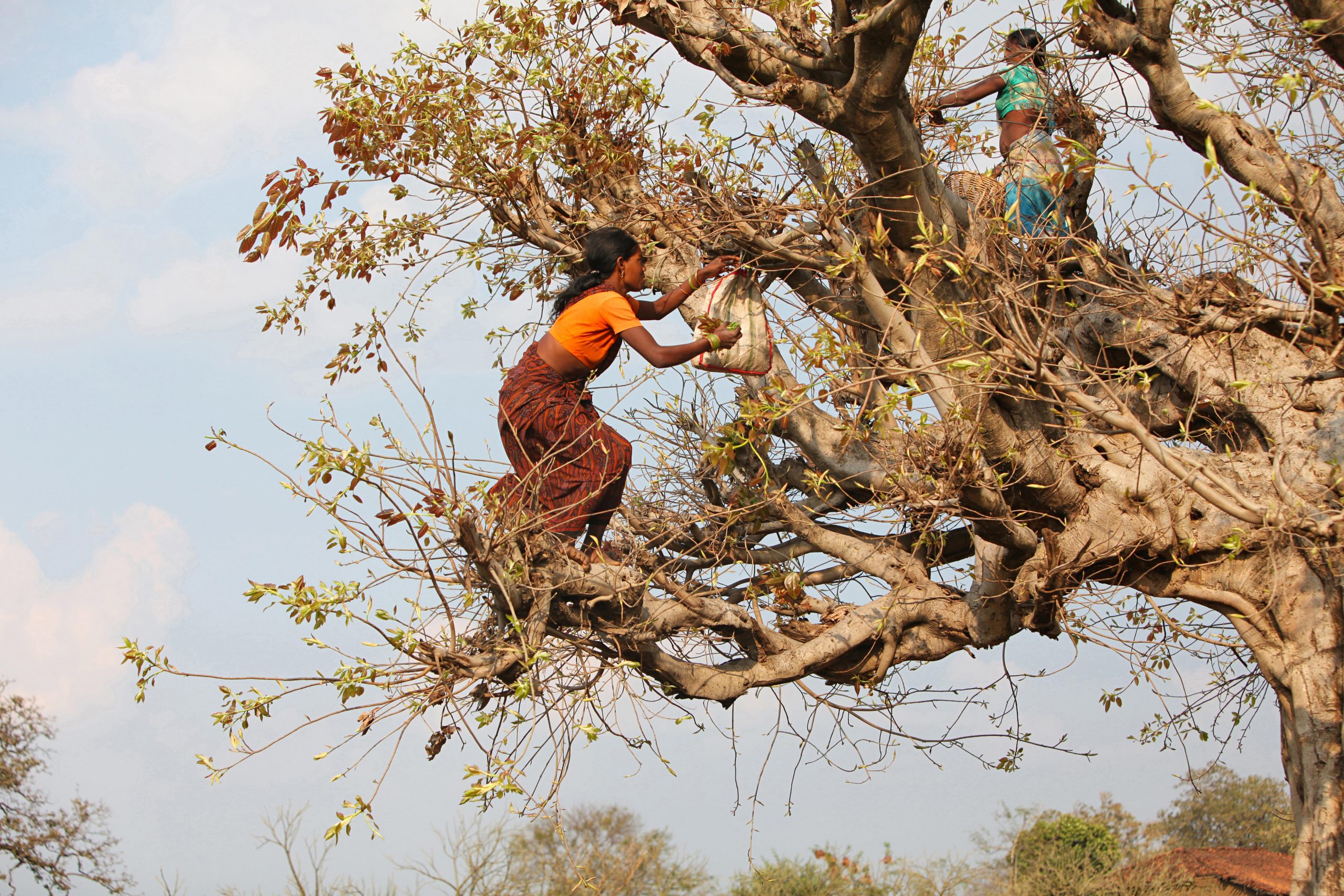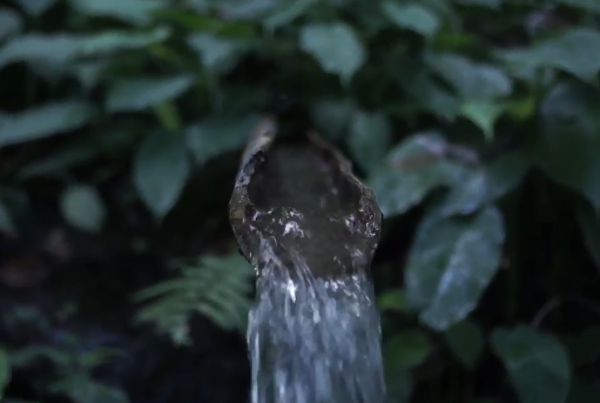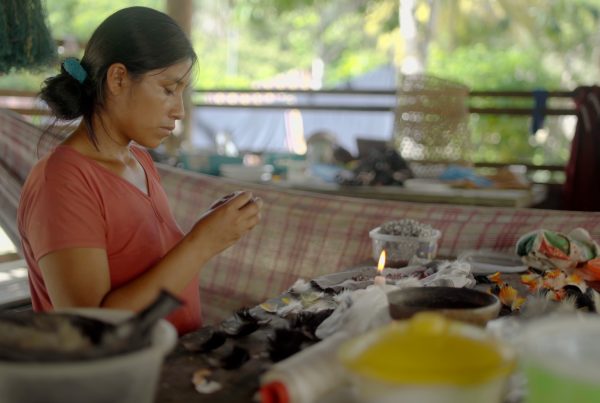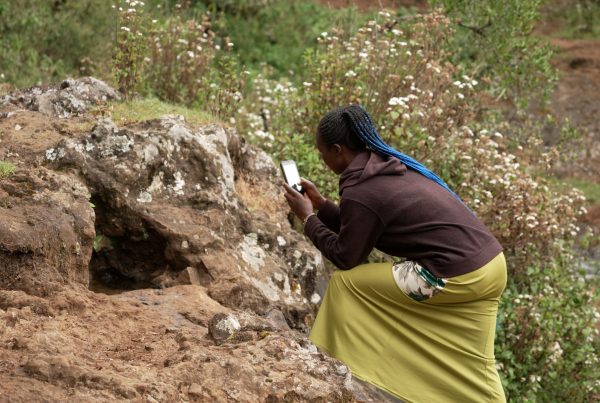Today, the International Indigenous Forum on Biodiversity, the Indigenous Women’s Biodiversity Network, the Centres of Distinction on Indigenous and Local Knowledge, Forest Peoples Programme and the Secretariat of the Convention on Biological Diversity are marking World Wildlife Day by publishing the digital version of Local Biodiversity Outlooks 2 (LBO-2) in English, Spanish and French.
LBO-2 is a landmark piece of collaborative research and analysis that features contributions from over 50 indigenous and local authors and communities. The report highlights the critical roles played by indigenous peoples and local communities in maintaining and enhancing biological and cultural diversity and outlines indigenous and local perspectives on the transformational changes needed in order to realise the vision of a world living in harmony with nature.
“From connectedness to nature comes the drive to safeguard it. From valuing our natural and cultural heritage comes the drive to ensure it is passed on. These are the things we learn in school and at home, from our peers and elders.”
Josefa Tauli, Global Youth Biodiversity Network
The theme of this year’s World Wildlife Day, Forests and livelihoods: Sustaining People and Planet, foregrounds the importance of indigenous peoples and local communities, as well as the challenges they face as a result of insecure tenure, discrimination, climate change, declining biodiversity and the continued expansion of extractive industries. We know, for instance, that
- At least 50% of the world’s land is collectively managed by indigenous peoples and local communities under customary tenure systems. Only 10% of these lands are legally secured.
- The lands of indigenous peoples and local communities contain much of the world’s remaining biodiversity, and biodiversity managed by indigenous peoples and local communities is declining less rapidly than in other areas of the world.
As negotiations towards the post-2020 Global Biodiversity Framework continue, LBO-2 demonstrates that to protect biodiversity at any scale, indigenous peoples and local communities’ own territories and systems of governance must be recognised.
“Today, as an elder of the Wapichan people, I call on our young leaders to diligently follow the ways of our ancestors in keeping our communities and our precious lands and resources healthy for the future of our people and the world. The earth is our mother so we need to take care of her. Let us make sure that our actions today and visions for tomorrow account for our people, our lands and our resources. I call on governments to reflect and take into consideration policies and actions that negatively impact and destroy nature. One big step governments can take is give our people title to the land, territories, and resources.”
Chief Kokoi, Wapichan elder (read the full statement on World Wildlife Day below)
In a series of six key transitions, LBO-2 explores the lessons drawn from the rich cases it contains to outline key changes that we need to see in our economic, financial and production systems, in governance, in land ownership and use, and in how we understand and use knowledge. The lessons drawn out here have much to offer policy makers as renewed commitments to climate change mitigation are being made and our global community confirms how the biodiversity crisis will be met.
Explore the digital report here.
—
Statement from Chief Kokoi, Wapichan elder, on World Wildlife Day 2021
“It is common knowledge that Indigenous Peoples’ lands and territories are the last sanctuaries where pristine forest and healthy fresh waters rich in flora and fauna can still be found. These fragile ecosystems and habitats play an important role in the culture of our Wapichan People. Our traditional lands and territories are under threat like none before through climate change and extractive industries.
With the understanding of the challenges we face today, we have developed a management plan to help us to maintain this delicate balance of interdependency. The Wapichan people continue to fight for the security of our traditional land and the landscapes within which wildlife needs to thrive.
This struggle faces many challenges: the lack of political will to resolve Indigenous Peoples’ land issues leaves large tracts of lands insecure and without legal protections. Policies promoting and supporting large scale agro projects and extractive industries on these lands significantly add to the destruction of key ecosystems and habits. They heighten the threat to survival of our people and the wildlife that supports our livelihoods.
Climate change has significantly altered our understanding about nature, our seasons have become confusing. And we see this confusion in the life of our forest, our plants, our fish, our birds and animals. Due to these unfavourable and unpredictable conditions, our wildlife and the environment which they depend on are now under extreme pressure to survive.
Today, as an elder of the Wapichan people, I call on our young leaders to diligently follow the ways of our ancestors in keeping our communities and our precious lands and resources healthy for the future of our people and the world. The earth is our mother so we need to take care of her. Let us make sure that our actions today and visions for tomorrow account for our people, our lands and our resources. I call on governments to reflect and take into consideration policies and actions that negatively impact and destroy nature. One big step governments can take is to give our people title to the land, territories, and resources.”



